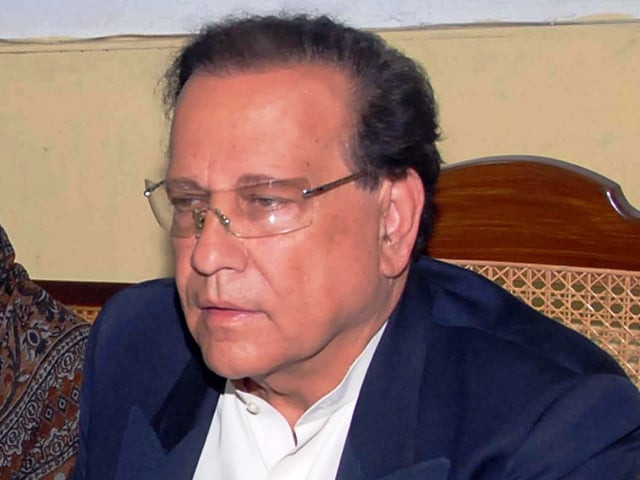How the blasphemy law divided the nation
Murder of Salmaan Taseer by policeman deputed to guard him has divided the nation into fragments of varying opinion.

When divisions take place, the essence of the divisive issue is lost. It no longer suits the clerics to focus on why the blasphemy law is in dispute. They insist that anyone who disputes the law is blaspheming against the Holy Prophet (pbuh); they refuse to get into the details of why a lot of believing but non-clerical people think that the blasphemy law is a man-made law which contains not divine but human error and should be improved in light of the jurisprudence of the law. Why are only the poor and mostly non-Muslims trapped in it? And why, after the accused is found not guilty, is the accuser not held to account?
The argument is won by the clerics, not because they are right but because they are powerful and have behind them a number of supporting elements who are no longer within the power of the state to curb. Is the politician united against the misreading of the blasphemy crisis? The PPP, scared of riling the clerics and their power to enlist suicide-bombing as one of their weapons, has hastily taken cover behind the ‘it is not a religious issue’ slogan. It is already under attack from the mullahs and doesn’t want to intensify this trend. But by calling the issue political, it has actually provoked the opposition PML-N, with whom its polemic has now entered its most bitter phase. The clerical campaign and the PPP-PML-N political clash have coloured the judgement of civil society in general.
In Rawalpindi, a stronghold of the PML-N, a noisy procession eulogising Mumtaz Qadri has pinned its thesis to the wall: Qadri is a national hero who has despatched a blasphemer and should not be punished under law. His father and brother are out in the open, morally supported by the conservative lawyers claiming they will save the killer. The Khyber-Pakhtunkhwa assembly, scared to death of what the Taliban might do to Peshawar, have unanimously resolved that the blasphemy law may not be changed. Most liberal TV anchors and their guests have taken the same line. A few hundred moderates and liberals, nonetheless, joined a PPP-led march on Friday in Lahore defending the cause of Governor Taseer, together with NGOs defending the minorities and members of a much-scared Christian community.
The PPP-PML-N rivalry is fast morphing into a ‘duel unto death’, familiar from the 1990s. Nawaz Sharif has sent an ultimatum to the government, asking it to carry out a number of ‘reforms’ if it wants to avoid being overthrown. In the coming days, the PPP will find the Sharif agenda of ‘correction’ impossible to execute, which will be followed by an involuntary closing of the ranks across the political-clerical divide and an open season of ‘long marches’, completely disabling the government in its pursuit of ‘justice’ for the family of Governor Taseer. Xenophobia and anti-Americanism, based on the clerical gloss that the blasphemy law is under threat because of ‘external’ pressure on a ‘willing’ PPP, will heighten in the coming days and combine with the general anti-IMF feeling in the country.
The moderates are outraged, but on the run. But they are also divided among those who think that Governor Taseer was right in standing up to defend a weak community and those who think he should have been less rashly outspoken. If civil society is supposed to be always right, it is time to change that view, after seeing the above divisions and a clear dominance of those who wield the power of the street plus those who will not oppose them.
Published in The Express Tribune, January 9th, 2011.














COMMENTS
Comments are moderated and generally will be posted if they are on-topic and not abusive.
For more information, please see our Comments FAQ